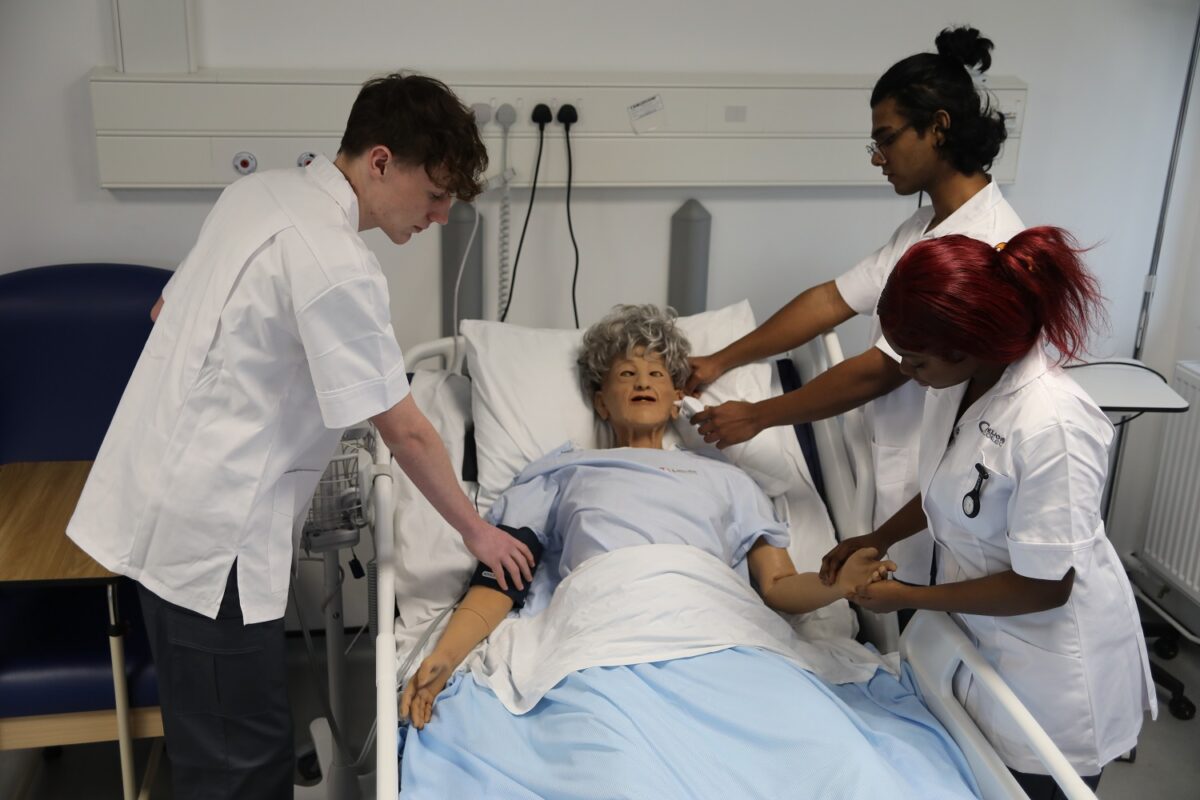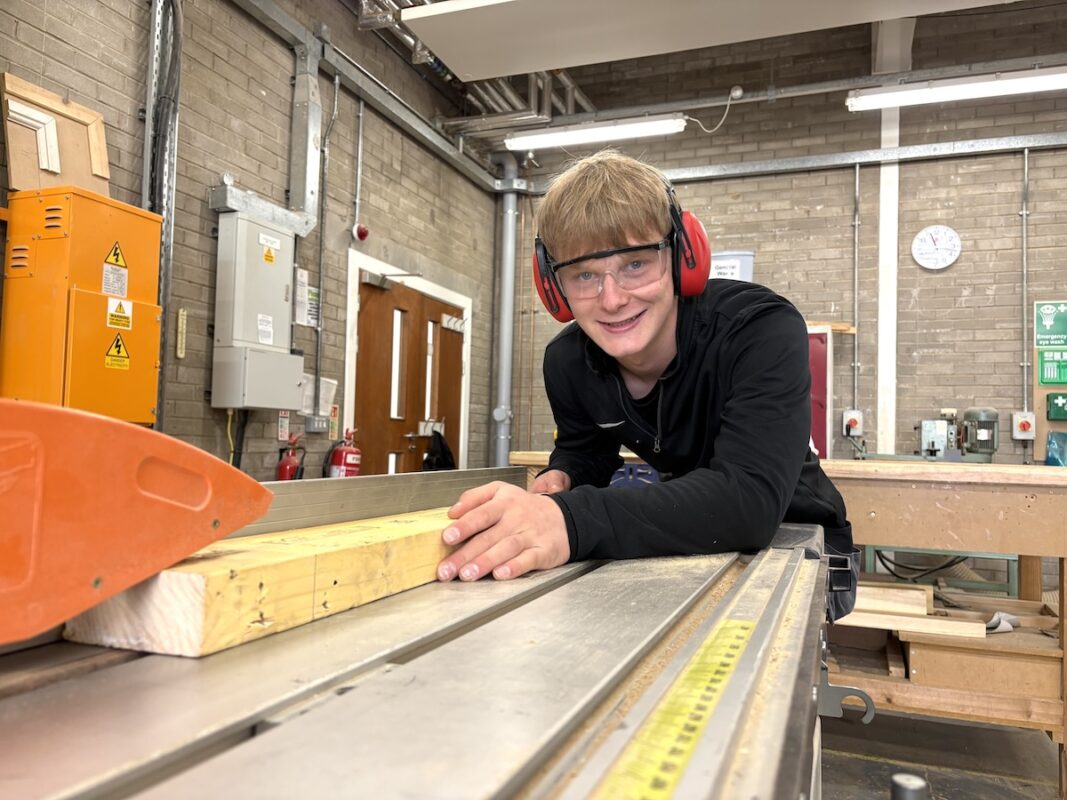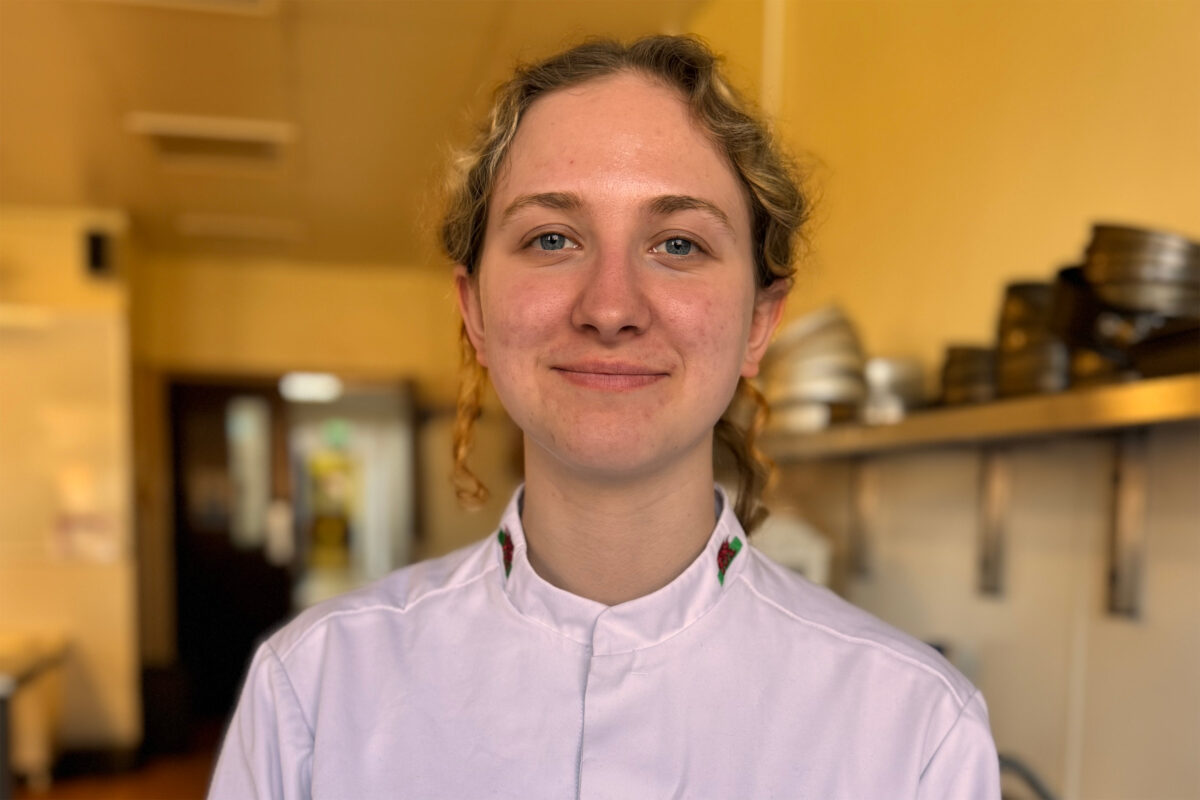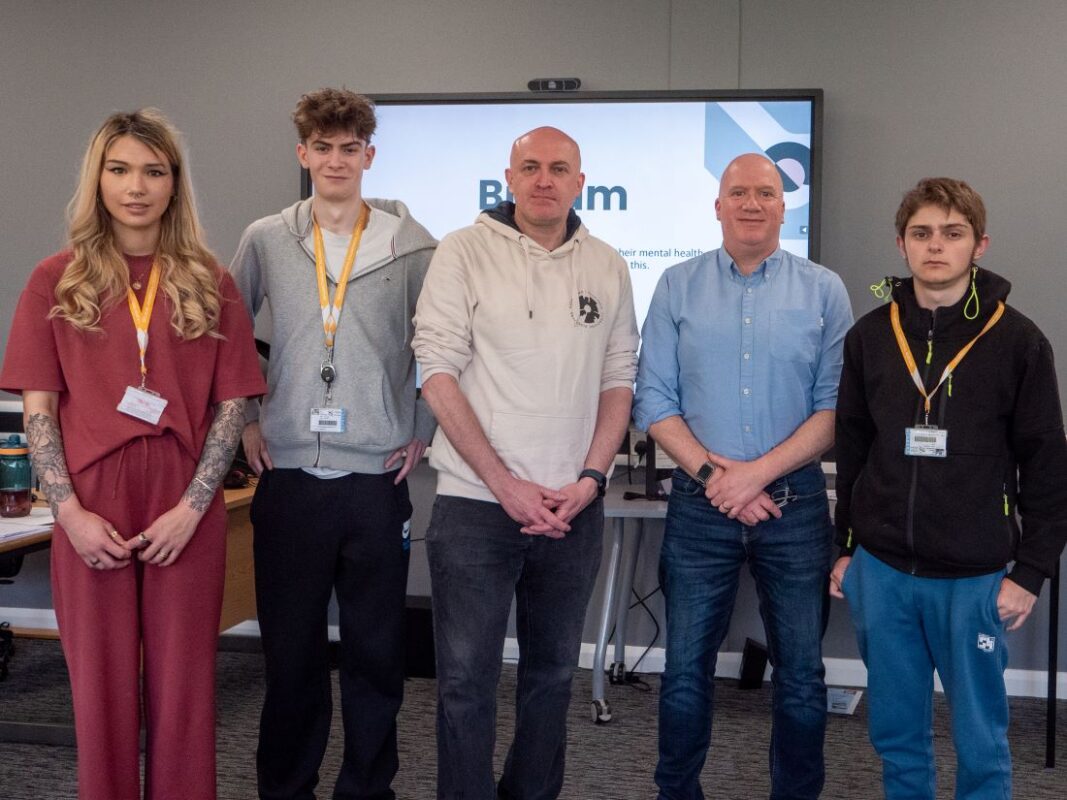T-Levels – an insight into Telford College’s health courses

When the Government first announced plans to launch T-Levels as a vocational alternative to A levels, Telford College wasted no time swinging into action . . . and the NHS was its first port of call.
The college had first-hand experience of the recruitment challenges across the health and social care sector, thanks to key members of staff with working experience in the NHS.
So, while many in education were burying their heads in the sand and hoping T-Levels would go away if they were ignored, Telford College viewed them as an exciting opportunity for collaboration.
The team could see how T-Levels had the potential to help plug some serious skills shortage in hospitals and social care services – but they also knew that bringing the two together would present huge bureaucratic obstacles.
They were right. It took two years to set up a system for securing T-Level placements in the local NHS.
But now, thanks to those many months of groundwork and tireless planning, Telford College is reaping the rewards and being held up as an ‘absolutely fantastic’ example of collaborative working at its best.
The college’s senior leadership team, led by deputy chief executive Janet Stephens, worked closely with senior executives at the NHS and ICS to create ownership and support their workforce planning.
The college’s NHS partnership is now spearheaded by director of health and science Sarah Davies, a former NHS midwife.
She says: “For me, T-Levels have opened an exciting opportunity for collaboration with NHS colleagues.
“Having worked in further education for 13 years, I have been a big advocate for vocational qualifications, especially within health and social care, with many students progressing into higher education and employment as intended.
“During my time as a midwife, I saw the gaps that existed, so when T-Levels were introduced, I could immediately appreciate the benefits of this mandatory meaningful industry work placement.
“At the age of 16, how can a young person possibly know about the range of careers that exist within health and social care? After all, there are 350 different jobs within the NHS alone. The best way to find out what these careers offer is to try them, and T-Levels provides that opportunity.”
That’s the positive side. But Sarah admits that making the link between T-Level placements and NHS providers also filled her with dread.
“Trying to secure NHS placements has traditionally been challenging. There are many reasons for this – including staffing levels, the volume of undergraduate students in training and lack of experienced mentors amongst existing workforces.
“I initially contacted the local trusts using my existing contacts and found that no-one had even heard of T-Levels. It took many months of persistence before eventually speaking to the right people.”
Those people were the team at the Integrated Care System (ICS) for Shropshire, Telford & Wrekin, which covers four local NHS trusts. Hooking up with them proved to be a real turning point.
Sarah says: “A steering group was set up involving representatives from all four trusts, including the practice education facilitators, heads of education, and senior nurses.
“It became very clear very quickly that to make this successful we had to work in collaboration with our neighbouring colleges to make it as easy for the NHS as possible – after all the NHS wants to accommodate students from all colleges.”
In those early planning stages, the steering group met monthly, chaired either by Sarah or the workforce development team.
Members quickly started to agree on the benefits of having T-Level students on placement with the NHS, and plans for the first cohort began to be developed.
The college and NHS staff jointly visited other education providers to observe best practice, and held parent meetings to ensure that students’ families were kept fully informed and involved.
Funding was secured to create a dedicated Health Care Support Worker Academy at Telford College’s campus in Wellington where new recruits now complete two weeks of mandatory training and begin the care certificate before going on to the wards or into the community.
Virtual and augmented reality equipment was purchased to aid learning, including the creation of bespoke simulation software, and clinically trained teaching staff were added to the team.
The software has already won several awards, and is due to be showcased at an international conference in the USA this spring.
A £430,000 Clinical Skills Centre has also been created at the Telford College campus to give T-Level students experience of a realistic clinical environment. It includes two ‘skills rooms’ – a four-bed hospital ward, and a two-bed maternity environment.
All T-Level students must complete this practical training before they go into placement, to ensure they are fully prepared for what the ward environment has in store.
This makes a real difference to the NHS, because it means that T-Level students can be employed by the trusts in year two, alongside their studies, and make a real contribution to the team.
Simon Whitehouse, chief executive of NHS Shropshire, Telford & Wrekin, performed the official opening of the Clinical Skills Centre.
He says: “The work that the college leadership team are doing here is absolutely fantastic when we think about how we develop a workforce which is going to be deliverers of care going forward.
“Colleagues who have worked with students from here on our wards would say straight away that it boosts confidence because of the experience they have already had with the simulation equipment, and working as part of a team.
“Looking at the simulation mannikins in here, and the anatomy equipment, it’s just fantastic. I think back to my clinical training, and the time when I was a student, and wish I’d had access to something like this. It would have made a big difference.
“This college is absolutely at the forefront in health and care.We are delighted to partner with and work with them to look at how we can really think about the workforce, and continue looking after our students going forward.”
So, reflecting now on the events of the past few years, how does Sarah Davies view the progress of the T-Level collaboration with the NHS so far?
“My vision was always to train and retain young people, as far too often students leave after level three studies and move out of area to study at university.
“My hope is that T-Levels will change this, as young people will feel part of the team; they will buy into the Trust values as they will be on work placement for two years.”
The process has already started. Telford College T-Level health students now have smart new uniforms for use during their placements; they have been carefully selected in partnership with the NHS, working in collaboration with other partner colleges to standardise the design.
“It means that all of our students have an official white uniform for their placements, with fob watches and pockets for their pens – clearly identified as a Telford College student, but being made to feel part of the team,” Sarah says.
The students thanked staff for the ‘lovely warm welcome’ they received during their first week of work placement at local hospitals.
Ruth Field, T-Level industry placement co-ordinator for health at the Shrewsbury and Telford Hospital NHS Trust, says the students commented on the ‘lovely warm welcome’ they received from hospital staff.
“Having the students in an industry placement allows them to see first-hand how the theory they have been taught in college is used in practice to ensure patient safety and quality of care.
“They are being supported in practice by the pre-registration education team and the industry placement co-ordinator who visits them regularly whilst in placement.
“We have had some lovely comments from the students, who said they can’t wait to be a part of the team. They said the T-Level course was a good way to learn – because it gives students chance to see how things actually happen.”
The next step for Telford College is to partner with local universities to encourage these highly skilled and experienced T-Level students to stay locally – whether that be university, degree apprenticeships or employment.
Sarah says: “The next issue I predict is that the Nursing & Midwifery Council may need to look at the content in year one of some of the health professional degree courses, such as nursing, as T-Level students will have the experience from placement and the knowledge from college that will be unlike that of any level three students.
“If done successfully, I firmly believe this could help solve some the NHS workforce issues, as in five years from now these 16-year-olds will be qualified health professionals working in our local hospital and communities.
“Telford College is currently working with the ICS to respond the NHS Workforce plan, not just in nursing but across the sector. Further education has a huge role to play in supporting the NHS workforce.”











Responses